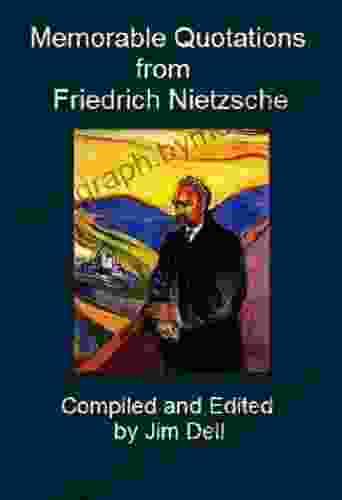Unlocking Parliamentary Potential: Why Not Parliamentarism?

The enduring question of political organization has captivated scholars and policymakers alike for centuries. While presidentialism and its iconic figurehead hold sway in many global powerhouses, its counterpart, parliamentarism, often remains underappreciated. Tiago Ribeiro Dos Santos' thought-provoking book, "Why Not Parliamentarism?," seeks to redress this imbalance, presenting a compelling case for the merits of parliamentary governments.
4.6 out of 5
| Language | : | English |
| File size | : | 2251 KB |
| Text-to-Speech | : | Enabled |
| Screen Reader | : | Supported |
| Enhanced typesetting | : | Enabled |
| Word Wise | : | Enabled |
| Print length | : | 93 pages |
| Lending | : | Enabled |
The Essence of Parliamentarism
At its core, parliamentarism embodies a fusion of powers between the executive and legislative branches. Unlike presidential systems, where the executive is both head of government and head of state, parliamentary systems bestow these roles upon distinct entities: the prime minister and the monarch or president, respectively. This separation of functions fosters accountability and checks and balances within the governing framework.
The prime minister, the central figure in parliamentary governments, serves at the pleasure of the parliament. This dependence on parliamentary confidence ensures that the executive branch remains responsive to the will of the people's representatives. Moreover, the parliament itself wields significant powers, including the ability to initiate and pass legislation, scrutinize government actions, and hold ministers accountable.
Advantages of Parliamentarism
Tiago Ribeiro Dos Santos articulates a myriad of advantages associated with parliamentary systems. One key benefit lies in their inherent flexibility. Unlike presidential systems, parliamentary governments can respond more swiftly to changing political landscapes. The ability to dismiss a prime minister through a vote of no confidence allows for a peaceful and timely transfer of power, avoiding the potential for political gridlock or instability.
Parliamentarism also promotes greater electoral choice and inclusivity. By utilizing proportional representation systems, parliamentary elections offer a broader spectrum of political options, allowing for a more nuanced representation of diverse societal perspectives. This inclusivity fosters collaboration, dialogue, and a more consensual approach to policymaking.
Moreover, parliamentary systems often exhibit stronger party discipline and cohesion. The fusion of powers between the executive and legislative branches fosters a sense of shared responsibility and common purpose. This unity enhances the capacity of governments to implement policies effectively and efficiently.
Transforming Governance
Beyond its theoretical underpinnings, parliamentarism has a transformative impact on governance. Tiago Ribeiro Dos Santos provides compelling evidence that parliamentary systems foster higher levels of political stability, facilitate economic growth, and promote social equity. The checks and balances inherent in parliamentary governments reduce the potential for authoritarianism or corruption.
Furthermore, the responsiveness of parliamentary systems to public opinion encourages governments to prioritize policies that address the needs of citizens. This responsiveness contributes to greater trust and legitimacy in government institutions.
In addition to its domestic advantages, parliamentarism can also enhance international cooperation. Parliamentary systems are more likely to engage in multilateral organizations and diplomatic initiatives, fostering a spirit of collaboration and mutual understanding.
A Comparative Perspective
Tiago Ribeiro Dos Santos' analysis extends beyond a narrow focus on parliamentarism. He draws insightful comparisons between parliamentary and presidential systems, highlighting the strengths and weaknesses of each model. This comparative approach provides a nuanced understanding of the complexities of political organization.
For instance, presidential systems may offer greater independence and autonomy to their executives, potentially facilitating bold decision-making. However, they can also be prone to power imbalances, gridlock, and a lack of accountability. Parliamentary systems, on the other hand, offer a more collaborative and consensus-oriented approach but may encounter challenges in balancing executive authority and legislative power.
Tiago Ribeiro Dos Santos' "Why Not Parliamentarism?" is a thought-provoking and timely contribution to political science scholarship. By exploring the multifaceted advantages and transformative potential of parliamentary systems, Santos challenges the traditional dominance of presidentialism. His rigorous analysis and comparative insights offer valuable lessons for both practitioners of politics and students of governance.
As the world grapples with complex challenges and societal transformations, the insights provided by "Why Not Parliamentarism?" are more relevant than ever. By shedding light on the virtues of parliamentary governments, Tiago Ribeiro Dos Santos empowers us to explore alternative paths toward a more democratic, stable, and equitable future.
Call to Action
Embark on an intellectual journey into the world of parliamentarism. Free Download your copy of "Why Not Parliamentarism?" today and uncover the transformative potential of a government model that prioritizes collaboration, accountability, and the will of the people.
Join Tiago Ribeiro Dos Santos in reimagining political organization and seizing the opportunities that parliamentarism offers for a better tomorrow.
4.6 out of 5
| Language | : | English |
| File size | : | 2251 KB |
| Text-to-Speech | : | Enabled |
| Screen Reader | : | Supported |
| Enhanced typesetting | : | Enabled |
| Word Wise | : | Enabled |
| Print length | : | 93 pages |
| Lending | : | Enabled |
Do you want to contribute by writing guest posts on this blog?
Please contact us and send us a resume of previous articles that you have written.
 Book
Book Novel
Novel Page
Page Chapter
Chapter Text
Text Story
Story Genre
Genre Reader
Reader Library
Library Paperback
Paperback E-book
E-book Magazine
Magazine Newspaper
Newspaper Paragraph
Paragraph Sentence
Sentence Bookmark
Bookmark Shelf
Shelf Glossary
Glossary Bibliography
Bibliography Foreword
Foreword Preface
Preface Synopsis
Synopsis Annotation
Annotation Footnote
Footnote Manuscript
Manuscript Scroll
Scroll Codex
Codex Tome
Tome Bestseller
Bestseller Classics
Classics Library card
Library card Narrative
Narrative Biography
Biography Autobiography
Autobiography Memoir
Memoir Reference
Reference Encyclopedia
Encyclopedia Patricia S Lemer
Patricia S Lemer Jennifer M Bay Williams
Jennifer M Bay Williams Jennifer Pharr Davis
Jennifer Pharr Davis Paul R Wonning
Paul R Wonning Jon Loeliger
Jon Loeliger Jeffrey V Wells
Jeffrey V Wells Jerry Boyd
Jerry Boyd Jesse Mccarthy
Jesse Mccarthy Michael Loynd
Michael Loynd Jessica Mellow
Jessica Mellow Nicholas Johnson
Nicholas Johnson Jessica Dixie Mills
Jessica Dixie Mills Roy R Neuberger
Roy R Neuberger Jerry Scott
Jerry Scott Joanna Kulesza
Joanna Kulesza Jerald Walker
Jerald Walker Jen Turner
Jen Turner Tabatha Chansard Phd
Tabatha Chansard Phd Jeff Kass
Jeff Kass Jennifer Keishin Armstrong
Jennifer Keishin Armstrong
Light bulbAdvertise smarter! Our strategic ad space ensures maximum exposure. Reserve your spot today!

 Junot DíazOp Center 11: An Unforgettable Spy Thriller That Will Keep You on the Edge of...
Junot DíazOp Center 11: An Unforgettable Spy Thriller That Will Keep You on the Edge of...
 Anthony BurgessHow to Achieve and Maintain Clear Skin Through Diet, Exercise, and Good...
Anthony BurgessHow to Achieve and Maintain Clear Skin Through Diet, Exercise, and Good... Lee SimmonsFollow ·2.1k
Lee SimmonsFollow ·2.1k Andy ColeFollow ·2.3k
Andy ColeFollow ·2.3k Theo CoxFollow ·11.9k
Theo CoxFollow ·11.9k Desmond FosterFollow ·10.3k
Desmond FosterFollow ·10.3k Herman MitchellFollow ·10.1k
Herman MitchellFollow ·10.1k Denzel HayesFollow ·2.6k
Denzel HayesFollow ·2.6k Bryan GrayFollow ·13.2k
Bryan GrayFollow ·13.2k Adrien BlairFollow ·17k
Adrien BlairFollow ·17k

 Jeremy Mitchell
Jeremy MitchellUnveiling the Truth: The Captivating Saga of The Elephant...
Embark on a poignant journey through the...

 Marvin Hayes
Marvin HayesThe Day The World Came To Town: A Heartwarming Tale of a...
In the quaint...

 Hugh Bell
Hugh BellExplore the Avian Treasures of Wisconsin: A Review of...
Unveiling the Secrets of...
4.6 out of 5
| Language | : | English |
| File size | : | 2251 KB |
| Text-to-Speech | : | Enabled |
| Screen Reader | : | Supported |
| Enhanced typesetting | : | Enabled |
| Word Wise | : | Enabled |
| Print length | : | 93 pages |
| Lending | : | Enabled |














